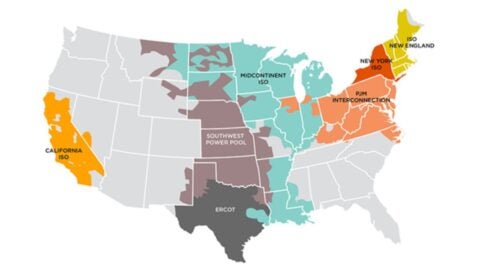The Old Global Cooling Scare
I was in Ohio last week visiting with folks in Cincinnati and Columbus. Most of the discussion focused on business opportunities for Ohio in the new low-carbon economy, but I also got interesting questions about global warming science.
I was especially impressed to learn what the city of Columbus is doing to go "green" (details are on the Columbus city site). We heard from Andy Darrell last week on Mayor Bloomberg’s vision for New York City, and it’s great to see that New York isn’t the only city thinking of a greener future.
But I most wanted to share with you a science question from the visit.
As I was getting ready for one of my talks, I noticed someone handing out copies of a Newsweek article from April 1975 called "Global Cooling." This is a common tactic of the science skeptics. The argument goes like this: These scientists don’t know what they’re talking about. First they warn of global cooling – even an imminent ice age – and now they warn of global warming.
Here’s an explanation of the science, in a nutshell. After decades of global warming, there was a brief period in the mid-20th century when global temperatures decreased somewhat. This cooling ended by about 1980, and the warming has continued ever since – and at an accelerating rate.
We now know why. Tiny particles from burning coal have a slight cooling effect. That cooling competes with the greenhouse warming caused by the accumulation of carbon dioxide from burning fossil fuels. For a brief time cooling dominated, but as carbon dioxide continued to build up in the atmosphere and coal-burning was curtailed in the U.S. and Europe, the warming effect took over. (For more details, see argument four in this fact sheet [PDF].)
But let’s focus on the main point of the skeptics’ argument – that scientists can’t be trusted. In the 1970s, did scientists really sound the alarm about global cooling? And does that undermine scientists’ credibility today?
A closer look at that old Newsweek article turns up a quote from the National Academy of Sciences:
"Our knowledge of the mechanisms of climate change is at least as fragmentary as our data. Not only are the basic scientific questions largely unanswered; but in many cases we do not yet know enough to pose the key questions."
Not exactly what you would call a "scientific consensus." (See my previous post on what the National Academy is.)
Now 30-plus years have passed, and climate scientists have been busy developing new and more sensitive instruments to measure the climate. We can analyze bubbles trapped in ice that tell us about past climate change, we have deployed sensors on satellites to give us a truly global picture, and we have access to ever more powerful computers to analyze data and simulate climate. And we have learned a lot.
This is what the National Academy of Sciences had to say in
2005:
"The scientific understanding of climate change is now sufficiently clear to justify nations taking prompt action… We urge all nations … to take prompt action to reduce the causes of climate change."
The Academy didn’t make a mistake in the 1970’s. It didn’t make a pronouncement until it was sure.
So now back to Ohio. Shortly after I started my talk, I directed folks to the original Newsweek article and gave them the facts. I love it when someone else is thoughtful enough to give the audience useful material ahead of time.













2 Comments
Regarding the first part of your post on Columbus and New York City, in New Hampshire a growing number of towns are forming energy committees to address their municipal energy use and carbon footprint. This grows from the NH Climate Change Resolution that has passed in 158 towns to date and calls for action on both national and local levels to reduce carbon emissions. In addition to talking the talk (passing the resolution), many towns are choosing to walk the walk by starting voluntary energy committees. While reducing the climate impact of a small town in NH does far less globally than Columbus or NYC, the engagement of average citizens in addressing climate and energy issues is the type of local action we need to build political will to take the necessary larger steps.
I recently talked with a NASA meterologist about global warming and global cooling. He said that the earth has 30 year weather patterns and that we are currently in a cooling cycle right now. This will be followed by another warming cycle and then another cooling cycle and so on.
This tells me that there is nothing we can do to either warm up the planet or cool it down. Everything that is happening is sopposed to happen. And another thing, if it wasn’t for global warming, wouldn’t we still be in an ice age?